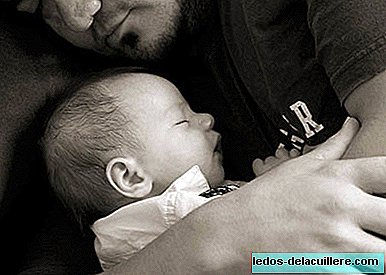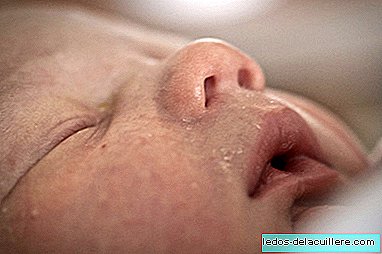
It is known that the woman's body prepares for months for motherhood, with profound and obvious changes. And if it is difficult to know if men are prepared to be fathers, we can at least say that their organism does dispose for it in a certain way.
It is known that Fatherhood produces a reduction in testosterone levels (male sex hormone) and hormones associated with women such as estrogens and prolactin are increased. So biologically dad's body is also prepared for the arrival of the baby.
In several studies, Katherine Wynne-Edwards, a biology professor at Queen's University in Kingston, found that the levels of the male testosterone hormone in a father dropped during the weeks near the birth of his son. He also found that estrogen and prolactin levels increased.
Prolactin is a hormone that in women is related to milk production, and although in men it is unknown if it has any function at normal levels, an excess of it is usually related to decreased sexual desire, which makes sense In the puerperium of women.
Alison Fleming, a professor of psychology at the University of Toronto, discovered that parents with higher levels of prolactin are more alert to a baby's cry, and that those with a lower testosterone level feel more the need to respond to crying.
Experience also plays an important role in these changes. Parents who are for the second time have a higher level of prolactin and a lower level of testosterone than those who are parents for the first time.

More civilized, less sexual and forgetful
In this same sense, we saw a while ago that parents become more "civilized" by having a child, as a mechanism to avoid any aggressiveness of parents against babies. In addition, the more testosterone, the more risks of aggression and more sexual activity.
If sexual activity is reduced, the mechanisms of nature in terms of competition or sexual rivalry that guarantees reproduction are “withdrawn” and give way to the father being more aware of the care of children.
In addition, there are other changes at the cognitive level that cause parents who increase their planning and memory skills, although this capacity decreases as the child grows.
I could already endure this interesting cognitive variation, right? But it seems that when children reach puberty, they disappear. Although it is also true that when children reach adolescence probably many, fathers and moms, we will not have neurons as awake as with young children (come on, decades go by for everyone).
So all these changes seem to make sense: Fatherhood also comes to men in the form of hormones that prepare them to be more attentive and care for the baby, along with other changes in the brain and of course the cultural influence that prepares them.
At the end of the day, it has its logic: you have had a lot to do with bringing children into the world, Nature could only facilitate the task with some retouching.
I don't know if we can say that parents become more feminine, but yes, in general, they become more paternal, with all that entails protection, affection, alertness and collaboration in the care of the baby. Fortunately, it must be said.












